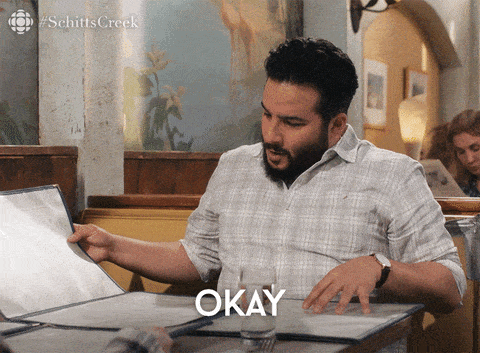With mock exams right around the corner, and NCEA externals following soon after, your teachers have probably started going off at you about how you need to “pull it together and start studying for your exams.”
The thing is, we know you’re busy. You’ve got better things to do, and with everything going on at the moment, thinking about a study plan might not be at the top of your list.
That’s why we’re here.
We’ve broken timetables down so that you can whip out the perfect study plan in no time (and stick to it!). And if you don’t think you need a study plan, we’ve broken that down too.
Why Should You Have a Study Plan?
Having a study plan (whether it’s colour-coded and prioritised, or just something you’ve scribbled on some scrap paper – we’re not judging) is one of the most underrated things you can do. Essentially, a study plan means that you can prioritise your studies and make sure that you’re well prepared for your exams.
You wouldn’t drive somewhere new without using google maps, or getting a mate to give you directions, right?
In the same way, you don’t want to sit your exam without already having planned the route to achieving your goals (and surviving exam season). It sounds super cheesy, but in the end, it’s always better to be prepared.
Here’s a tragic stock photo to prove our point:

And if you hate studying, think about it this way:
A study plan will make sure that you can do as little as possible, so that you can achieve your goals. If you have a study plan, you won’t waste time studying for random things and missing other super important stuff. Essentially, you’re planning so that you can spend more time chilling out later, knowing that you’ve got things sorted. Sound good?
Before we start, there are two things you need to know;
1. A study plan only works if it’s realistic.
We all have this “ideal version” of ourselves. You know the one. They rise with the sun, enjoy a morning workout, eat healthy, and study for like 6 hours a day (before walking the dog, spending time with their family, cooking dinner, and reading a self-help book at night).
Unfortunately, we’re not that person. We often get up late, procrastinate, and spend far too much time on our phones, and you know what? That’s okay! Studying for 6 hours a day isn’t realistic, and if that’s your current plan, you’re going to either stress yourself out or make yourself feel guilty for not being a study machine.
It’s always better to make an easier plan that you’ll stick to, rather than making an unrealistic one that sits crumpled up in the corner of your room forever, haunting you.
2. You need to give yourself direction.
Okay, so you’re trying not to stress yourself out. Last year you said that you’d study for 8 hours straight, and ended up scrolling on TikTok all day. This time, you’ll make a super flexible study plan, and then there’s no way you can’t stick to it… right?
The thing is, we’d all much rather hang out with friends, or chill on Youtube instead of studying. If your plan is too flexible, then you’ll keep putting off the work, and it won’t be effective. Without direction, or a specific idea of what you’re going to study, you’ll probably end up procrastinating – or if you do study, you probably won’t cover everything that you needed to.
So what do you do?
Make sure that you break down your subjects into smaller chunks, and assign specific chunks to specific days.
If you say “I want to study for physics three times this week” but don’t figure out what you actually need to do, your brain will enter panic mode, and you won’t get anything done.

Instead, make it specific. Tell yourself that you’ll do a mechanics mind map, 20 practise questions on circular motion (because that’s a tricky beast) and then try one question from a past paper to test yourself.
This way, you have specific tasks that are easily achievable, and you won’t be overwhelmed by the mammoth task that is “Level 2 Physics.”
It doesn’t have to be perfect, nor does it have to be pretty.
We all love a pretty schedule. You know, the ones with pastel highlighters, and morning yoga scheduled in. The thing is, if you spend a lot of time making a really pretty plan, you’re spending less time studying.
Remember, the study plan only works if you do! A pretty plan is useless if you never get around to actually using it. And, if you spend a lot of time making it look perfect, you’ll probably set unrealistic goals, or you’ll feel like you’ve ruined your entire plan the second you miss one study session.
So whether your plan is colourful or plain, scheduled or more flexible – make sure that you actually use it! Also, don’t be afraid to change your plan as you go along. If your study requirements change as you progress, don’t be afraid to change your plan.
Experiment with your timetable, and see what works best for you.
How to Make a Timetable That Suits Your Needs
So we’ve convinced you to make a timetable. Now, where do you start? There are so many study planners online, but they’re never quite right, and they often want you to wake up really early, or take 10-minute lunch breaks. No thanks.
If you make your own timetable, you know that it’ll be perfect (you made it, duh). You can make sure that you’ve got time for The Chase at 5pm every night, or you can avoid studying on Saturdays. Because Saturdays are for the boys.
With that being said, here are our steps for creating the perfect timetable.
Assess Where You’re At
The first stage of grief is denial, and the first stage of creating a plan is enlightenment (basically, admit how bad it is, so that you can fix it).
All jokes aside, you can’t expect yourself to make a good study plan if you don’t know where to start.

It’s easy to pretend that you’re confident with everything, or hope that it’ll sort itself out before your exams, but when you actually breakdown each subject, your study plan will be 10x more accurate, and 10x better.
Here are some questions you could ask yourself:
- How many subjects are you taking? How many papers are you sitting for each subject?
- How confident do you feel from 1-10 with each paper?
- Write down a list of all the key concepts for each paper, or use the StudyTime checklists. These will point out any areas that you’ve completely forgotten about, and you’ll be able to use this knowledge to prioritise what you’re studying.
- Figure out which subjects (and if you can, which papers) need the most work. Which ones scare you the most? Which ones are the hardest? These are the papers that you probably want to study for the most.
Set Your Expectations
The next step to creating a great timetable is to realistically set your expectations. If you’re aiming to pass a subject, you’ll have completely different expectations for yourself than if you’re trying to get excellence.
Your study plan should reflect your goals, whatever they may be. If you need to learn the nitty-gritty stuff for biology, you’ll need to dedicate more time to that than say, maths, which you find pretty easy.
Another thing to consider is how much time you have to work with. Be realistic. If you only have a week until your exams, or you have a lot going on, you probably won’t be able to study 1 hour a day for every exam you’re sitting.
We’re exaggerating, but you get the point.
Here are some questions you could ask yourself:
- What are your goals for each exam you’re sitting?
- E.g. if it’s your mock exams, you might want an achieved now, but work up to a merit by the end of the year.
- How much time do you have until your exams?
- How much time do you have available to study every week?
- What can you realistically aim for with the time that you have left?
Take Note of Your Commitments
We’ve said it before, and we’ll say it again. You’re not a study machine.
Life always seems to get in the way of our study plans. So what’s the solution? Plan for as many of those “life” events as you can.
If you know that you’ll be spending every Saturday morning with your family, write it down. If you have sports games or training, write it down. If you have part-time work, write it down. Whatever it is. Write. It. Down.
Once you’ve listed all your other commitments, you’ll be able to see how much time you actually have to work with. You can also make sure that you haven’t told yourself to do maths questions after a long shift at work. See? You’ll be saving yourself in the long run, trust us.
Here are some questions you could ask yourself:
- Do you have specific times that I don’t want to study? E.g. Time with family and friends, dog walks etc.
- Do you play any sports?
- Do you have a part-time job?
- Do you have any other commitments that are non-negotiable?
- Lastly, are there are times that you’d prefer to keep available (I don’t know about you, but we’d rather not study before 9am if we can help it).
While you will probably have to sacrifice some of your free time, you can make your timetable work around your commitments. You may have to cut your Netflix binges short, but you can still find time for those sports practises or time with your family and friends.
Find Times That Work For You
Okay, so you know what you need to do. You know when you can’t do anything. Now it’s time to figure out the best times for you to study.
While you might not enjoy studying, you can still make it as easy as possible. If you’re a morning person, it doesn’t make sense to study at night.

Figure out when you’re most likely to be productive, and when you’ll have the least amount of distractions. Then, you’ll be able to maximise your time, because you’ll get way more done when you actually sit down to study.
It’s better to be productive for 30 minutes than to stare at your book for 2 hours, wondering why you can’t concentrate.
Here are some questions that you can ask yourself:
- Are you an early bird or a night owl?
- Do you like studying after school, or would you rather have a break, and study later that night?
- Do you prefer spacing your studying across the entire week, or do you like to keep your weekends free?
- Do you like studying for short periods of time, or would you rather get it over with in one go?
Create Your Schedule
Okay, we’re almost there. Here’s what you should know:
- How many exams you’re sitting.
- What your goals are for each exam.
- Which exams need the most work (work smarter, not harder, people).
- When your exams are, and how much time you have to work with.
- What your other commitments are (and when they happen).
- How much time you have left in a week for studying.
- When you would like to study, and how you’d like to break down your study sessions (eg. spaced throughout the week, short or long study sessions etc).
You’ve done all the hard stuff already. All we need to do now is put it all together. We can’t tell you specifically how to create a study plan, because everyone will have completely different requirements, or preferences for their studies.
For example, you might need to prioritise chemistry, because that’s a mess at the moment. If that’s the case, you’ll probably have more chemistry slots in your plan than English, which is your best subject.
Or maybe you only want to work on memorising quotes for English just before your exams, but you need to practise those maths questions for a longer period of time. In that case, you can constantly have maths in your schedule, but add English in when you get closer to your exams.
We suggest you do this:
- Print out our study planner or rule up a blank sheet of paper from Monday to Sunday.
- Block out the times that you’re busy with your other commitments.
- Take your list of prioritised study tasks (whichever exams need the most work, and the key concepts that you’ve forgotten or find the most challenging).
- Remember the times that you said you’re most productive? Cool, find those times and start filling them up with different subjects.
- If you really feel like it, you can also print out our subject checklists for each paper you’re sitting, and then you can tick off the different concepts as you revise them.
- Congratulations, you’ve just made the perfect study plan. It’s designed just for you, and it’s already 10x better than the ones you saw on Pinterest. Because this one is realistic, practical, and works around your already-busy life.
Hopefully, you can see how this works. Be flexible with what you need each week, and keep it specific to your requirements. Remember to be specific – don’t just write “physics” for three days in the week.
Study Techniques For Any Timetable
So you’ve made yourself a timetable, and told yourself that this time you’ll be prepared. You’re ready to go, and you’ve hit your first study slot in your timetable.
Now what?
If you’re stuck on how to actually study for your exams, don’t worry, we’ve got you covered.

Here are our tips if:
You hate walls of text:
If textbooks and pretty notes really aren’t your thing, you’re not alone. Staring at giant walls of text can get really boring, really quickly. Instead, you could try some of these study techniques:
Mind maps:
Mind maps are a great study technique, and they’re definitely underrated. The great thing about these is that there is no right or wrong method of doing a mind map. These are great for practising extended thinking, because you’re linking concepts and drawing conclusions from your own thoughts.
To use mind maps most effectively, we recommend sitting down and writing all the things that you can remember for a subject on the page. Draw arrows to link your ideas, and write down anything you think is relevant to the topic. Once you’ve done this (without looking at your notes), you can then go back with your notes on hand, and fill in the blanks with any key information that you missed. This is a great way to practice free recall, which is one of the most effective ways to study.
Flashcards:
Flashcards are another really effective study tool. They’re really easy to use on-the-go, and you can whip them out wherever you are. These are perfect for learning equations, definitions, quotes, or key ideas in any subject. If you repeatedly use flashcards, you’re reinforcing the information in your mind, and you’ll be far more likely to recall it in an exam.
To use flashcards most effectively, we recommend writing one question or word on the front of the card, and writing an explanation on the back. Then, try to say the answer out loud without reading the back of the card, and you’ll be practising active recall again! You probably want to use the flashcards at least once a week to make sure that you keep refreshing your memory.
Discussion-based learning:
This is another great way to learn if you hate making notes and you just want a more relaxed way to study. Discussing based learning is a lot of fun when you’re with friends or family, and you can test your knowledge of a concept by teaching someone else.
You could also just make a study group, so that you and your friends can all suffer together. Study groups are an effective study method, as long as everyone studies, because if you’re stuck on a concept, your friend might have a better understanding of it, and they can show you what they know. Basically, you can all help each other (even if you’re all a little confused). You can also attempt really challenging questions together, and see if you can solve it as a group.
If everyone is busy, having a go at teaching your dog how to do calculus. We know he’s smart enough to handle it. And you know that you’ve actually understood the concept, because you’ll be able to break it down into steps for your dog to follow.
You get easily distracted:
If you’re easily distracted, it could be because you’re not setting specific goals or tasks for yourself to complete. Sitting down and doing some practise questions might not be your thing, and you’ll quickly get bored, or feel like you’ve been doing a pointless task for way too long.
Instead, make sure that you have task-oriented study sessions, and that you set specific goals when you study. If you do this, you’ll have a goal to work towards or a specific task that you need to complete. You’ll be less likely to get distracted, because you can see that the end is in sight, and it’ll be a lot easier to concentrate.
You’re only motivated for short periods of time:
If you’re only motivated for short periods of time, the Pomodoro study technique is perfect for you. It maximises your productivity, and makes the most of that short burst of motivation that we get when we start studying.
The Pomodoro method involves setting 25-minute study intervals, with a 5-minute break in between. Basically, we break down a task into small chunks. We set a goal that we can accomplish in 25 minutes. We set a timer for 25 minutes, and focus 100% on accomplishing it. We take a 5-minute break to flex on Instagram.
You get the best of both worlds – your study sessions are short and painless, and your brain doesn’t have to suffer.
You put too much pressure on yourself:
This is a tricky beast, and if you’re feeling really stressed, we’ve got a few articles to help you out. If you’re feeling the pressure, allocate break times into your timetable.
The common theme in this article is that you’re not a study machine. You’re going to get tired, you’re going to get stressed out, and you’re going to need breaks. These can include short 5 minute breaks to get a cup of tea, or to walk outside and quite literally smell the roses.
You should also plan longer breaks into your timetable. Take an hour or so off, and do something for yourself. Whether this is hanging out with friends, doing some baking, or sitting next to your cat in front of the window and watching the cars drive past. We’re not judging.
Our point is, take a break.
If you’re really feeling the pressure, plan your study breaks into your timetable so that you know how long you’ll be studying for, before you even start.
You tend to flop in your exams:
This one really hits hard. If you’re the type of person who studies throughout the year, and somehow flop in your exams, this one’s for you.
Incorporate exam practice into your study sessions. Focus on past papers when you study, and study them almost as much as the content itself! This way, you’ll be used to the weird language that NCEA uses, and you’ll be able to interpret their trick questions more easily.
How do you include exam practice?
- Use the assessment schedule. Have a look at what you’re actually being tested on, and ask yourself whether you actually know that information. If you don’t, go back and work on those concepts.
- Practice with past papers (here’s an article to help you out).
- Mark your own work, and don’t go easy on yourself. Use the marking schedule, and go through your attempted past papers. You’ll be able to see exactly what you did well, and what you needed to include to boost those grades.
- Look for common questions that occur in exam papers every year. This way, you’ll see how NCEA has the same concepts that pop up every time, even when the context of those questions changes. Then, when you’re sitting your exam, you’ll know that even if they give you a weird situation, the concept will still be the exact same.
If you’re stuck inside and still have to study:
We know how much COVID has affected students this year. The uncertainty and anxiety that this has caused will have a huge impact on your studies. First of all, you should be proud of where you’re at, and the effort that you’ve put in so far. Secondly, you’re not alone.
We don’t know if there will be another lockdown, but if you’re stuck inside for a long period of time, here’s another study technique for you to try.
The Roman-Room technique is a study method that you can use if you’re stuck inside, and you have a lot of things to memorise. There was a kid on Ellen who actually used this technique to memorise an insane amount of things, and he was famous… so it must be effective.
Basically, this is a type of memory palace, which is where you associate different parts of a room to different things that you need to memorise. If you associate objects in the room, or pictures on the wall, with different words that you need to learn, then you can walk through the room in your mind, and your brain will associate the mental image with the concept you’re trying to memorise.
If you’ve got more stuff to learn, then you can expand the room. Include the bathroom, the hallway, the lounge. You’ve pretty much got an endless variety of mental places to choose from.
Conclusion
Studying is always spoken about like it’s really straightforward, and you should just go out and do it. Teachers assume that you already know what you’re doing.
Unfortunately, there is a lot more to it than that. What works for one person might not work for the next (because we’re all different humans trapped in our own flesh prisons). You are not the bionic man, capable of running for hours, focusing on a task until it’s complete.
It’s all about finding what works for you, and this isn’t going to be something that you can do overnight. It’s about trial and error, and while it might take a while to figure out, you’ll get there, as long as you try.

0 Comments